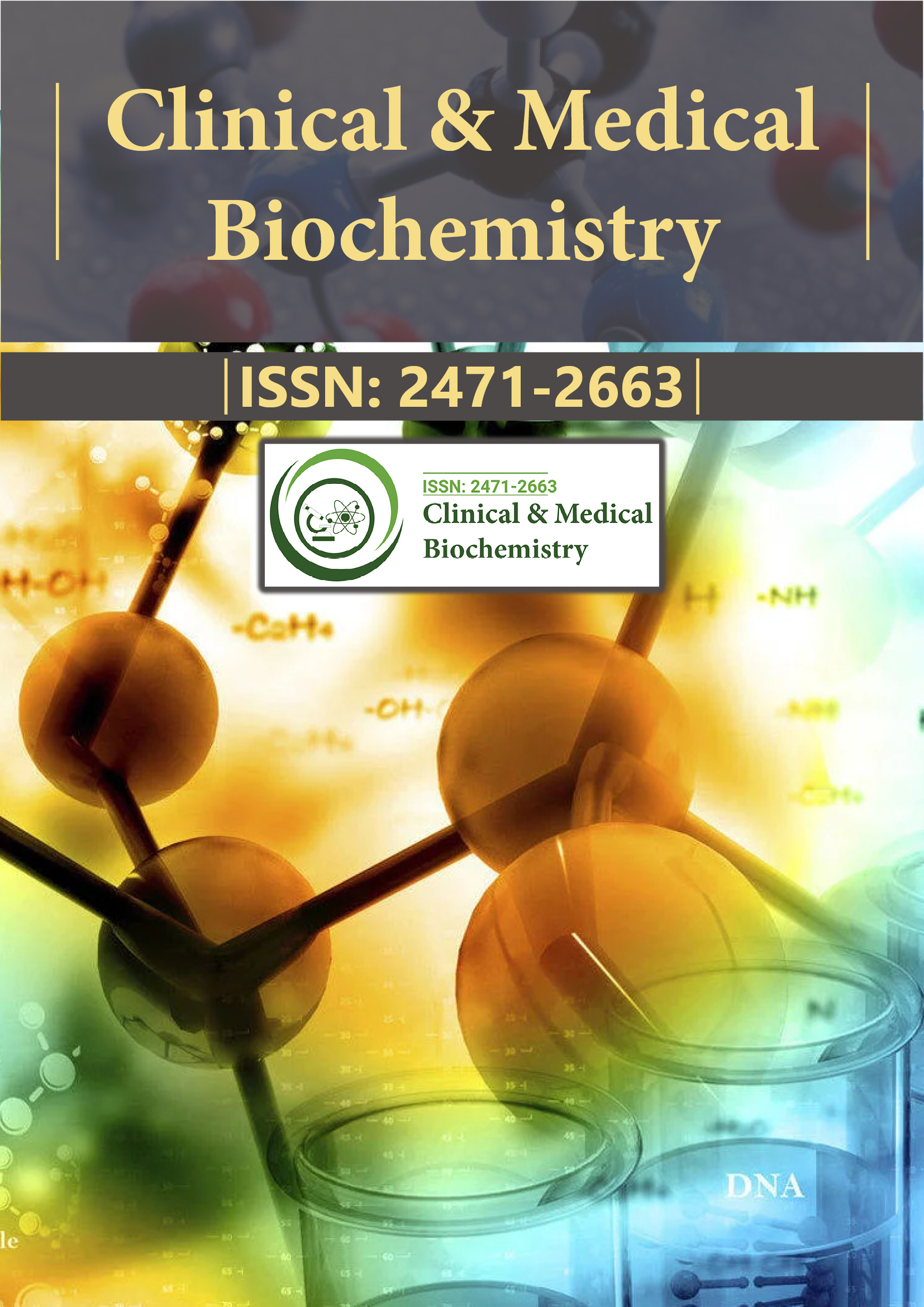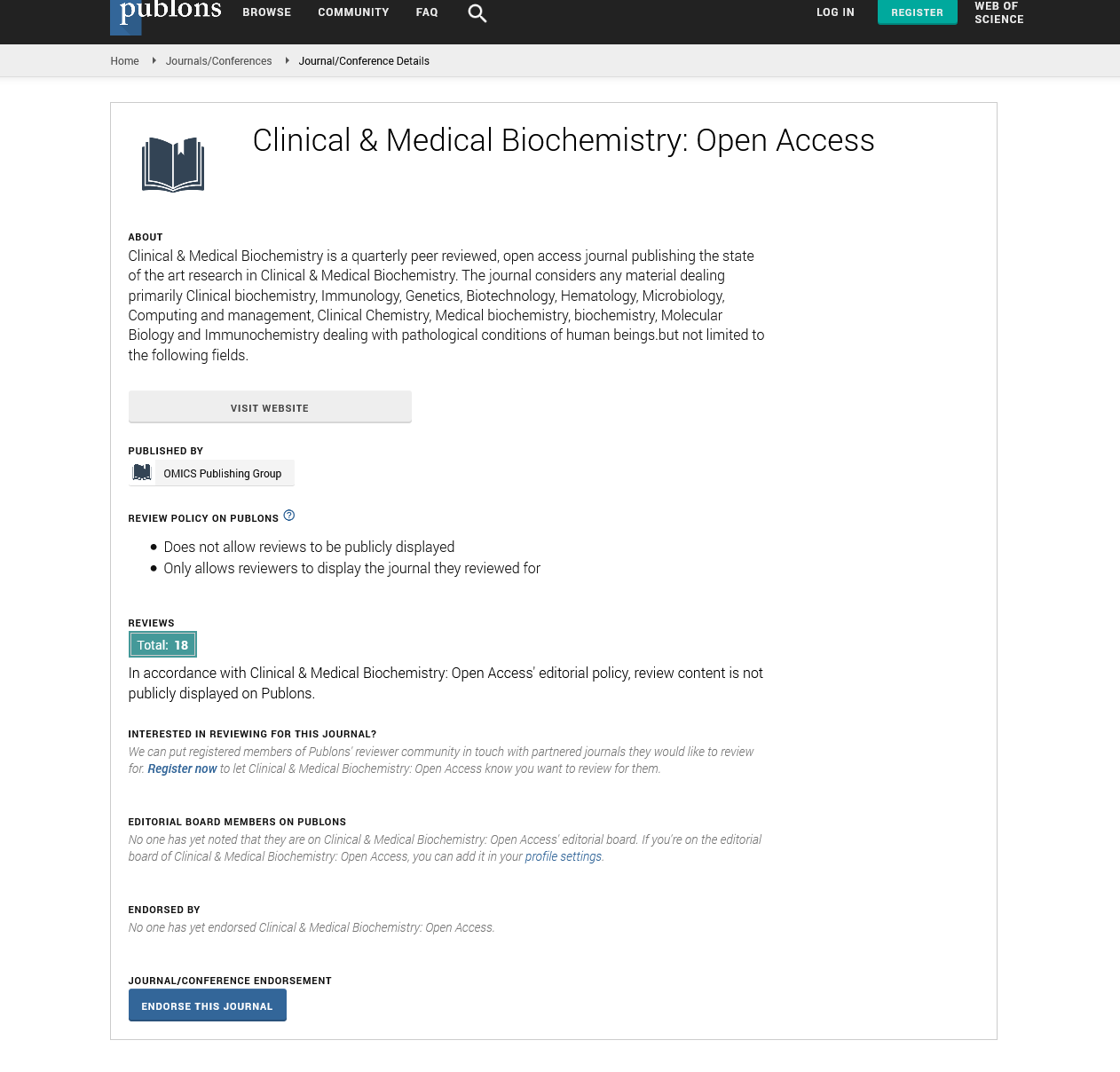Indexed In
- RefSeek
- Directory of Research Journal Indexing (DRJI)
- Hamdard University
- EBSCO A-Z
- OCLC- WorldCat
- Scholarsteer
- Publons
- Euro Pub
- Google Scholar
Useful Links
Share This Page
Journal Flyer

Open Access Journals
- Agri and Aquaculture
- Biochemistry
- Bioinformatics & Systems Biology
- Business & Management
- Chemistry
- Clinical Sciences
- Engineering
- Food & Nutrition
- General Science
- Genetics & Molecular Biology
- Immunology & Microbiology
- Medical Sciences
- Neuroscience & Psychology
- Nursing & Health Care
- Pharmaceutical Sciences
Abstract
Incidence of Shiga-Toxin-Producing Escherichia coli (STEC) in Diarrheic Calves and its Profile of Sensitivity to Antimicrobials and to the Extract of Eugenia uniflora L.
De Souza Moreira, Oliveira MC, Santos TO, De Mello Silva Oliveira N, Alves Rufino LR, Gomes Boriollo MF
The present work had the goal of evaluating the presence of the Shiga-Toxin-Producing bacterium Escherichia coli
(STEC) in diarrheic calves, its resistance profile against the antimicrobials usually employed in clinical practice, and
evaluating the antimicrobial activity of the plant extract of the leaves of Eugenia uniflora L. against the isolates. The
samples were obtained from animals belonging to dairy farms in the South of Minas Gerais and submitted to
microbial isolation and identification. Molecular assays were performed, by the search for genes stx1 and stx2, for
STEC identification. The isolates were subjected to tests of antimicrobial sensitivity to the drugs usually employed in
clinical treatment, using the disk diffusion method. The Minimum Inhibitory Concentration (MIC) of the
antimicrobials gentamicin and sulfamethoxazole+trimethoprim was performed by the Etest technique. The sensitivity
of the plant extract was investigated by the methods of diffusion in agar and broth microdilution, and the MIC and
the Minimal Bactericidal Concentration (MBC) were determined. From the isolates analyzed, 17% presented the
searched genes isolated (10%stx1 and 1%stx2) and in combination (6%stx1+stx2). These isolates also presented
multiresistance to the antimicrobials tested. The hydroalcoholic extract of the E. uniflora leaves presented
antimicrobial activity against all isolates analyzed, with a MIC of 12.5 mg/mL and bacteriostatic activity. The data
obtained contribute to the knowledge of STEC incidence associated to bovine diarrhea and point to the need of
monitoring and controlling these multiresistant enteropathogens. Although Eugenia uniflora L. shows a potential
antimicrobial action in vitro, other preclinical and/or clinical studies must be developed in order to ensure its
therapeutic application.
Published Date: 2019-11-04; Received Date: 2019-10-12

